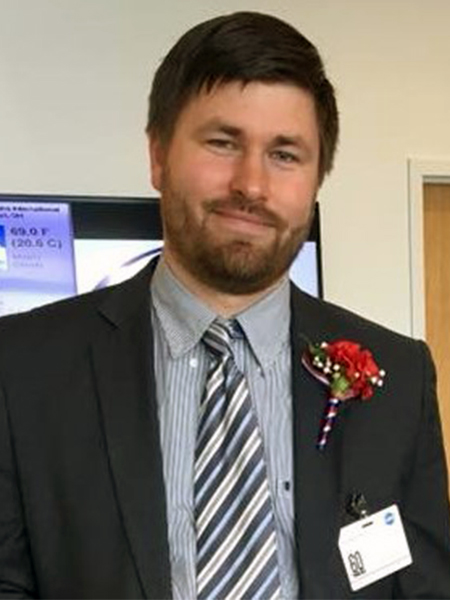AAE alumnus receives NASA's Early Career Achievement Medal

AAE alumnus Logan Larson earned NASA’s Early Career Achievement Medal, awarded to a government employee for significant performance during the first 10 years of a career in support of the agency.
Larson (MSAAE ’13) was honored for outstanding leadership working with agency and international partners in solving issues and making recommendations for the Orion European Service Module propellant system, according to NASA.
“It is always nice to be recognized for the hard work and dedication you put into a project, and being specifically for an early career achievement, it is an appreciated acknowledgement of the potential I possess going forward,” says Larson, who received the medal Sept. 24 at the 2018 Agency Honor and Center Awards Ceremony.
To reach such heights, Larson credits dedicated co-workers and management, as well as willing mentors at NASA and in school who “have taken significant amounts of time to teach, guide, and truly help me above and beyond their standard role.” He says he also is thankful for the support of his family.
Larson, a propulsion engineer at NASA Glenn Research Center, serves as the European Service Module (ESM) propulsion feed system lead. In that role, he is responsible for overseeing the design, testing, safety, and, ultimately, delivery, of all ESM liquid propulsion hardware from the sub-supplier through flight. He also is responsible for the propulsion and thermal interfaces, as well as performing various analyses and modeling such as slosh, dynamic fluid flow, and pressurization budgets.
He’s been at Glenn for about five years, starting there immediately after completing his master’s work at Purdue.
“Zucrow Labs is almost a wholly unique experience from anywhere else, where you have an opportunity not just to do real, practical research, but be responsible for that research from implementation and integration, to testing and data analyses,” Larson says about his Purdue experience. “Prior to joining NASA, I knew about thrusters, because I had fired them; I knew about valves, because I had purchased them and rebuilt them; I knew about data acquisition systems, because we worked on them daily. At Purdue, you have an opportunity to learn from great professors in the classroom, and beyond that, you have the opportunity of experiencing the nuances that you rarely get to learn prior to starting your career.”
